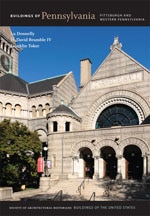Fulton is a rural county of ridge and valley landforms, with a charming county seat at McConnellsburg. Formed in 1850 from part of Bedford County, it was named for Robert Fulton (1765–1815), a native of Lancaster County and an artist and engineer best remembered for popularizing the use of steamboats on inland waterways. Some Euro-American settlement began as early as 1740, with settlers seeking out the Great, or Big, Cove, a flat and fertile valley protected on three sides by mountains. It was a life threatened by Native American incursions until the commonwealth purchased the land in 1758. The mountainous ridge and valley contours and the lack of a commercial rail line kept the county from overdevelopment. Farms, gristmills, and bituminous coal mines prospered in the nineteenth century, but have left few physical remnants other than many older farmsteads and brick and stone houses from the first half of the nineteenth century. Two state parks and several quaint villages make tourism the second largest industry in the county, after farming.
The county is traversed by I-76 and U.S. 30, and by I-70 along the western border, making it a through route from Pittsburgh to Philadelphia and south to Hagerstown, Maryland. The southern townships were considered part of Maryland until the border was established along the Mason-Dixon Line in 1768.
Writing Credits
If SAH Archipedia has been useful to you, please consider supporting it.
SAH Archipedia tells the story of the United States through its buildings, landscapes, and cities. This freely available resource empowers the public with authoritative knowledge that deepens their understanding and appreciation of the built environment. But the Society of Architectural Historians, which created SAH Archipedia with University of Virginia Press, needs your support to maintain the high-caliber research, writing, photography, cartography, editing, design, and programming that make SAH Archipedia a trusted online resource available to all who value the history of place, heritage tourism, and learning.

